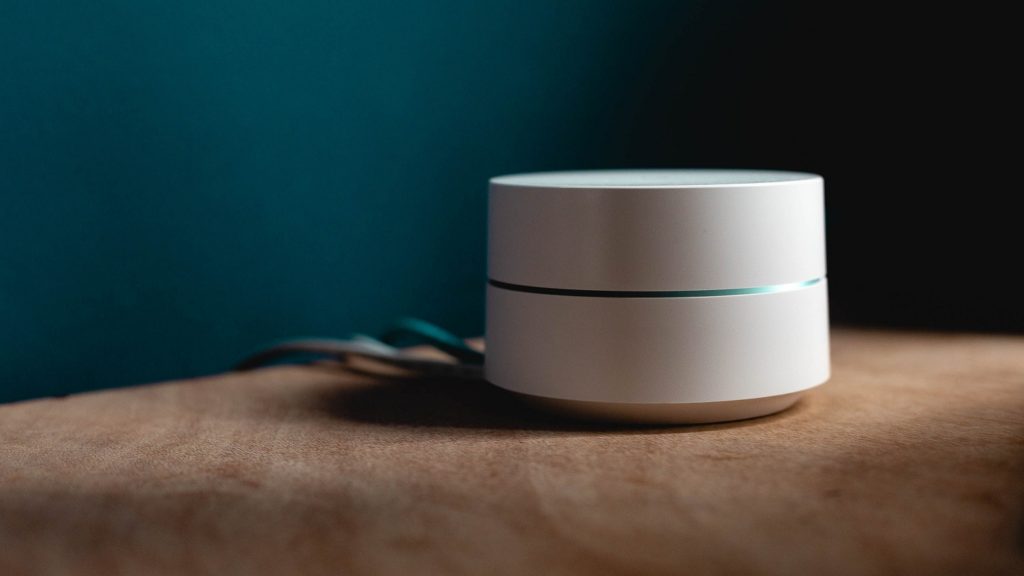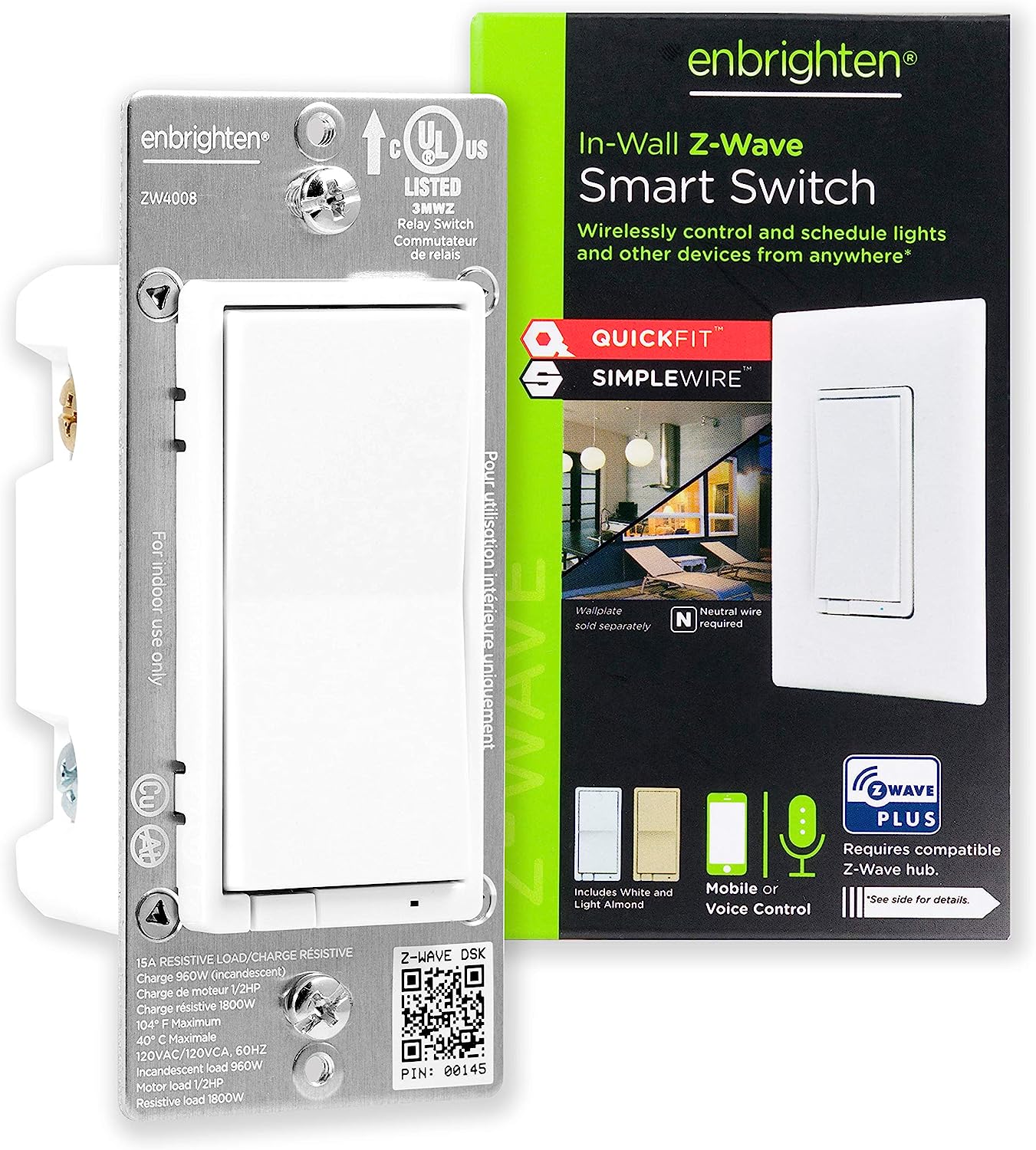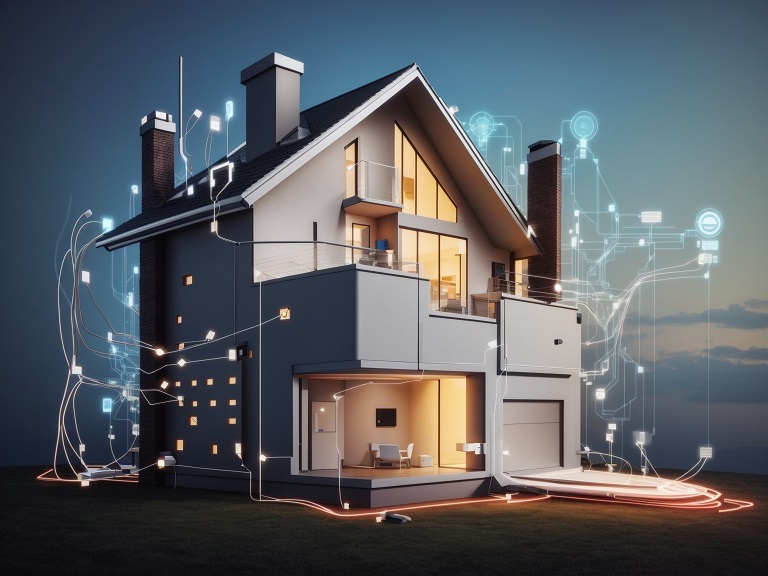We want you to know that this site is supported by our users. Some of the links you’ll find on our site are affiliate links, and if you make a purchase through those links, we may earn a commission at no extra cost to you. Thank you for your support – it’s what keeps us going!
Smart homes are great for improving accessibility and user experience for household tasks. Unfortunately, smart homes are not great at operating without an internet connection! This doesn’t mean you can’t get some features of a smart home without internet.
With more off grid homes than ever, a reliance on smart home gadgets is becoming prevalent. It’s crucial to understand the role internet plays within your smart home and whether you can operate without the internet.
Smart homes can work without the internet but you’ll be working with much fewer features, meaning you miss out on crucial functionality. This will render your smart home as user friendly as a normal home. Setup will also be challenging as the internet is needed for updates, security, and complete setup.
In this article we’ll look at whether you can build a smart home without the internet. We’ll also discuss what to do when your internet fails and if you have any options to consider! So, let’s get into it…
Can You Create A Smart Home Without Internet?
If you’ve got a very slow internet connection, or no internet at all, you may still be very interested in taking your home from a normal home to a smart home. Rest assured, it’s still very much possible!
The internet is a precursor to a smart home. In all honesty, if you are without internet, I don’t believe that setting up a smart home or any kind of home automation is wise. Home automation without internet is like a smartphone without a battery.
Regardless of the workarounds and tools out there that can work without the internet, there are no smart home gadgets on the market that never need an internet connection to complete their function to the best of their ability.
As of late 2023, there are a range of devices coming to the market that can circumvent the issue of needing an internet connection to remain smart. Many folks worry about having all their devices working within the cloud. The potential for hacking and having your home controlled is always a very real threat.
Developers have since created Zigbee and Z-Wave. We’ll touch on these later in the article. These devices can remain “smart” without needing the internet!
Why Do Smart Homes Need The Internet?

Smart home devices need an internet connection to do their job. There are typically a small number of features that work without the internet but the majority of the features that enhance user experience cannot be used without a connection.
There are a number of different reasons why these devices need the internet, including:
- Security
- Updates & Patches
- Reporting
- Remote Access If Needed
- Access To All Features
By using technology that doesn’t have access to regular firmware updates and patches, you’re leaving your tech vulnerable to security breaches.
As we touched on above, there are a few smart home gadgets on the market that can run through Zigbee or Z-Wave. This negates most of the risks listed.
What Happens If Your Smart Home Loses Internet Connection?
If you lose internet connection, your smart home appliances and gadgets will still work to some degree, but not completely.
For example, let’s assume you have a Ring Doorbell at your property. If you lost your internet connection, a visitor could still ring your doorbell. However, you would not be able to see a live feed of who was at your door from your mobile if you were out of the property. Nor would you be able to speak to the visitor in real time through your doorbell.
Therefore, if you lost the internet, your smart home would be reduced to a normal home where you must either miss the door, or go and answer the door.
The same applies for the Amazon Alexa or Google Home. If you lost your internet connection, most functionality goes out the window. You couldn’t ask your smart home assistant for what the weather is going to be at 2 pm when you leave the office. It also wouldn’t be able to tell you what the traffic looks like for your commute.
However, you could still connect to the Bluetooth functionality via your phone and play music through Alexa or Google Home. It’s not exactly the functionality you were hoping for, but it’s better than nothing!
Smart thermostats and smart lights will also be rendered pretty much useless without an internet connection – so that’s something to be aware of.
Some smart home gadgets that rely purely on an internet connection to complete any task will fail to work. There will also be no security updates or firmware updates completed. This presents an element of risk if you are using your smart home gadgets for things like locking doors.
Are There Smart Home Gadgets That Do Not Need The Internet?

If you’d have asked this question a few years ago, the answer would have been a firm no. However, there are now options in the market for those homeowners that want a smart home without needing the internet!
You may have heard of Zigbee. Zigbee is a relatively new wireless technology that allows all smart devices within a certain area to communicate with each other.
For example, if you had smart devices that supported Zigbee, across your house or Personal Area Network (PAN), your lights, locks, motion sensors and any other smart home gadgets could communicate and operate seamlessly, without the need for Wi-Fi.
With Zigbee and Z-Wave technology advancing so fast, it makes a lot of sense to purchase smart home gadgets that support these new technologies.
Most Wi-Fi networks can only support around 30 devices at any one time – with most households already starting to reach this limit with a few pieces of smart tech. In terms of longevity, utilizing Zigbee may be a great idea!
Summary – Can I Build A Smart Home Without Internet?
In conclusion, it’s possible to run smart home appliances without an internet connection but you will have very limited functionality. In fact, some gadgets will be completely useless without a live internet connection.
Zigbee and Z-Wave technology is advancing rapidly and allowing homeowners to connect their smart devices up to a certain range, without the need for Wi-Fi to obtain interoperability.
It’s recommended to look at purchasing smart home gadgets with Zigbee functionality enabled! If you’re getting started, have a read of our “Smart Home Setup Guide” to point you in the right direction.
Have you set up a smart home system yourself? We’d love to hear about it in the comments below!



